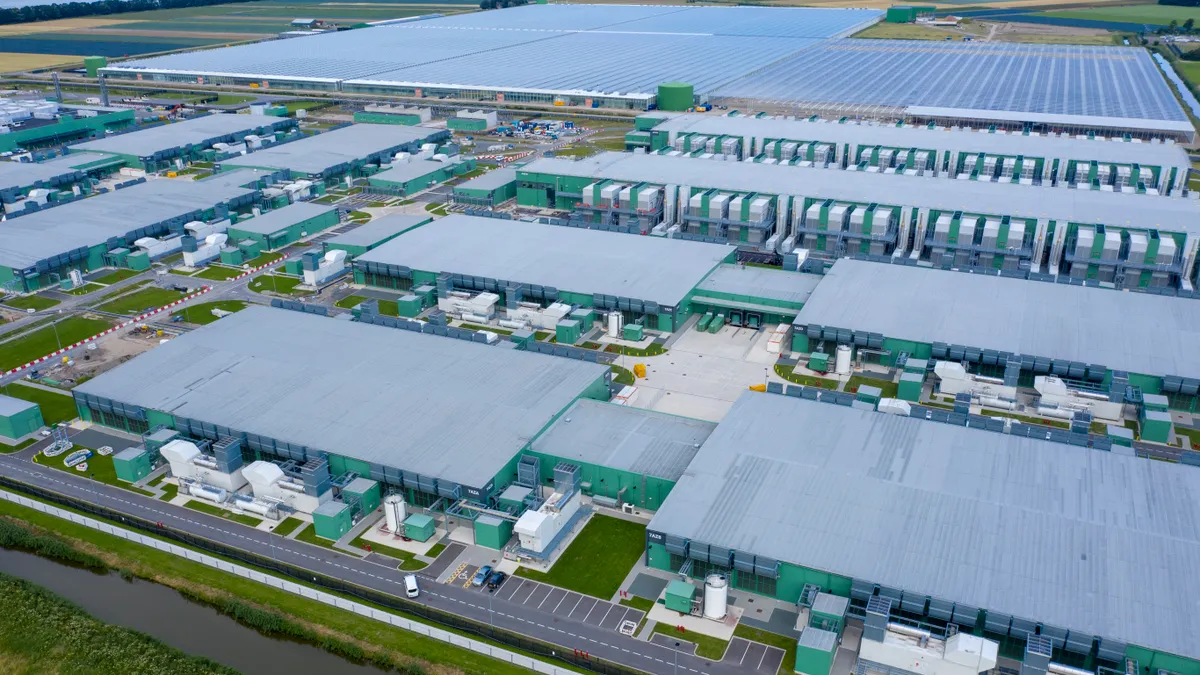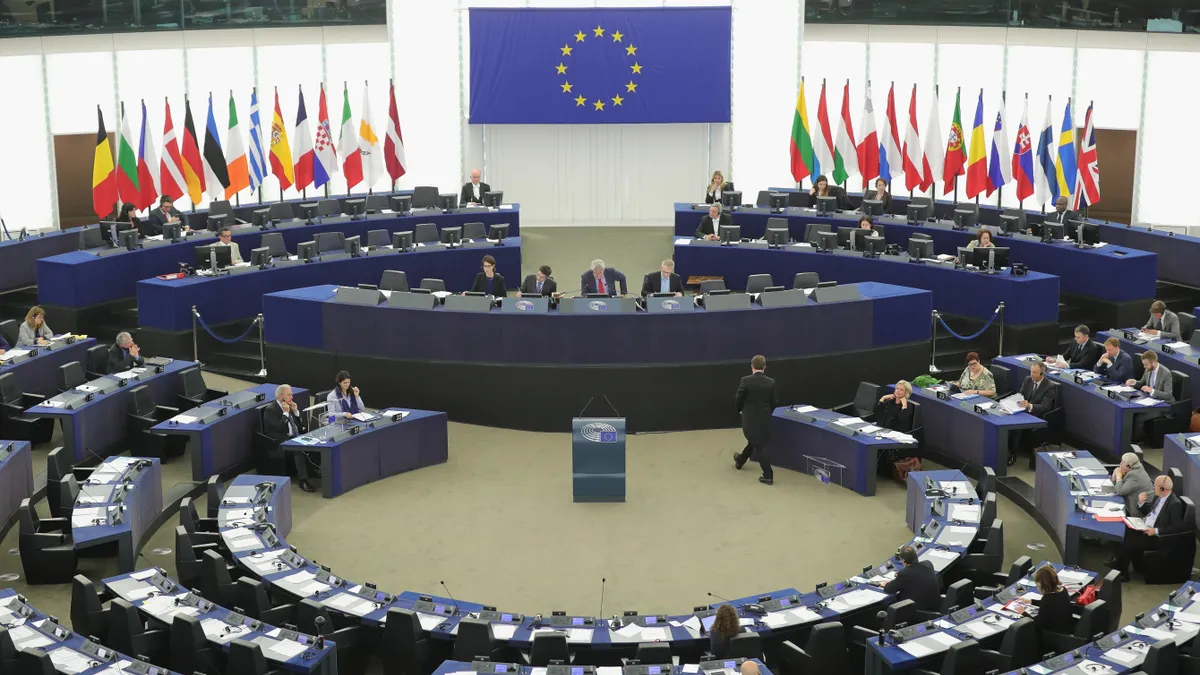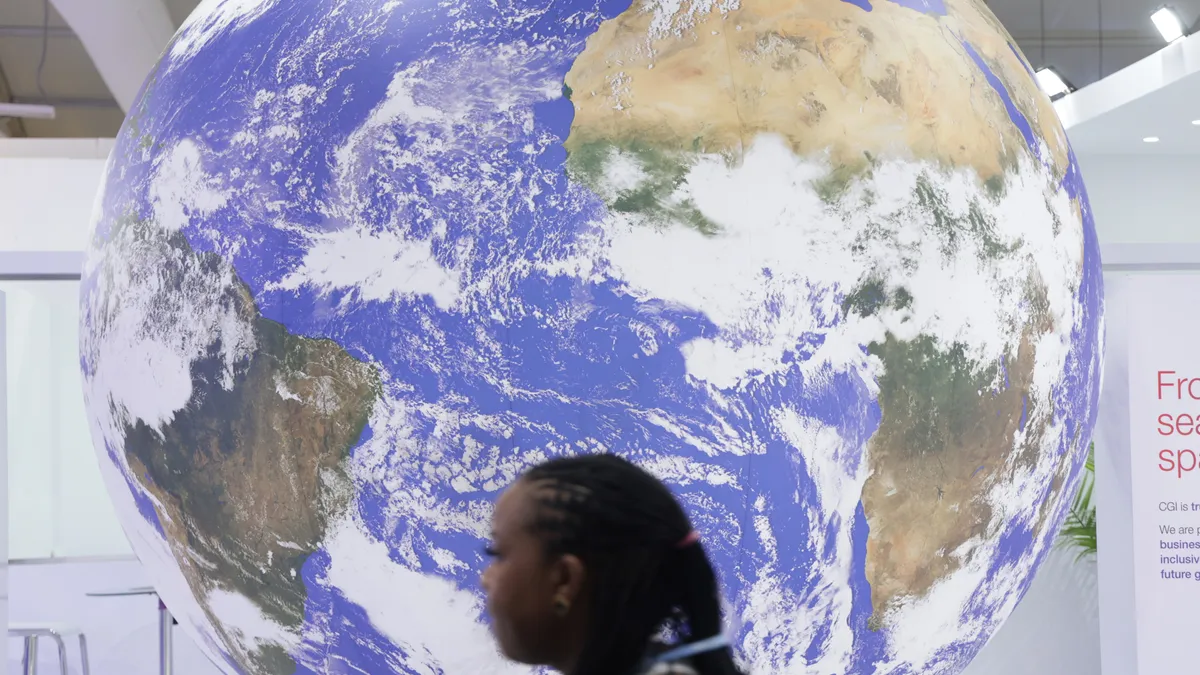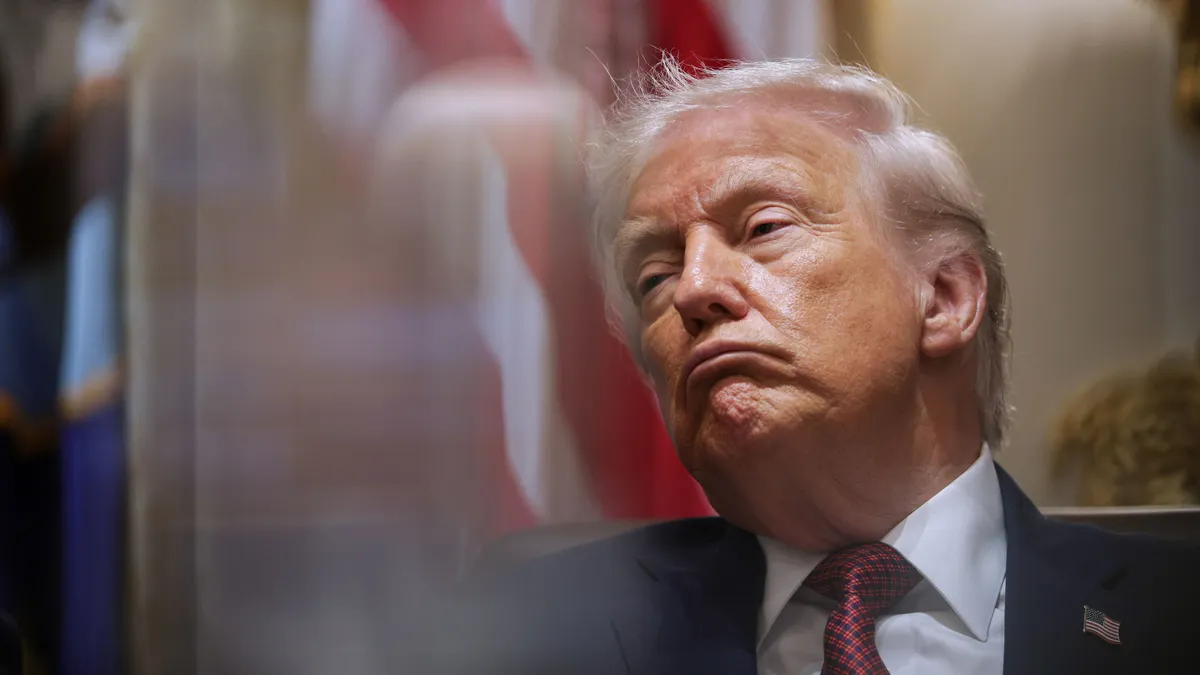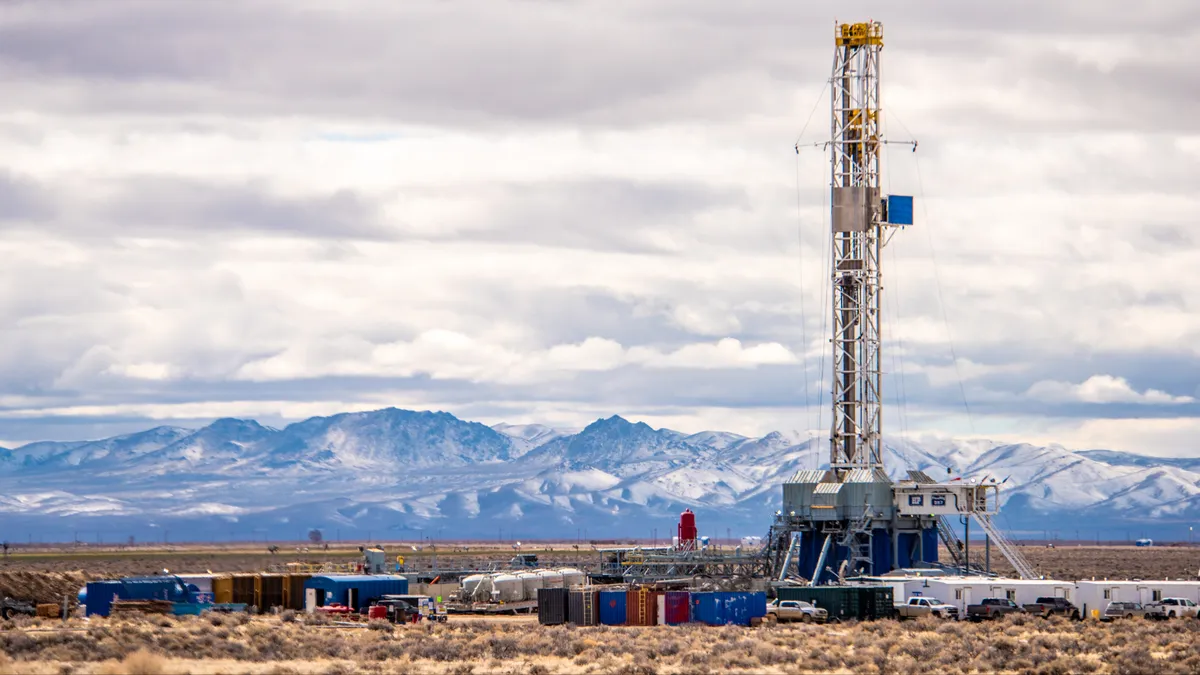Acting Securities and Exchange Commission Chair Mark Uyeda’s decision this week to ask the Eighth Circuit Court of Appeals to delay arguments for the agency’s climate risk disclosure rule did not come as a surprise to regulatory experts in the space. While the change is expected to have minimal immediate impact, it does set the stage for a shift in focus for the SEC under the Trump administration.
The SEC issued its long-awaited climate-risk disclosure rule last March, nearly two years after it was first proposed — and amid over 24,000 public comments. Uyeda was one of two commissioners to vote against the rule’s approval. The rule was immediately met with multiple lawsuits that were later consolidated into the Eighth Circuit. The spate of legal challenges led the agency to stay the rule’s implementation in April.
Given the agency’s stay and the change in administration, Tom Willman, regulatory lead for artificial intelligence sustainability platform Clarity AI, said Uyeda’s decision came “as no great surprise.”
“It is nevertheless disappointing that investors will be deprived of much-needed financially material information related to climate related risks,” Willman said by email Wednesday.
Julie Gorte, senior vice president of sustainable investing at Impax Asset Management was more blunt in an interview: “The only person on the planet who didn't see this coming was Rip Van Winkle,” she said Wednesday.
Uyeda’s recommended pullback on defending the SEC climate rule follows his prior critiques of the rule. During the hearing on the final climate rule, in the weeks after it was finalized and in his Feb. 11 statement announcing the delay request, Uyeda maintained his belief that the SEC does not have the authority to promulgate the rule or require such disclosures.
Jenner & Block Partner Jennifer Lee, a former assistant director of the SEC Enforcement Division, said Uyeda’s position is “consistent with the new, Republican-led SEC’s shift back to focusing on ‘bread and butter’ investor disclosure issues.” Lee, who now represents companies and financial institutions in regulatory investigations and litigation, told ESG Dive in emailed comments Thursday that she expects that focus to include an emphasis on materiality, while looking to avoid “overly prescriptive disclosure requirements for public companies.”
The change in SEC posture, however, is expected to have a minimal impact for companies or investors, according to Willman and Gorte.
“The impact of this is going to be extraordinarily minimal, partly because it was never enforced in the first place,” Gorte said Wednesday. “So we never had better climate reporting stimulated by U.S. regulatory postures to begin with. And for U.S. companies, or for any company really, a lot of the big ones are probably still going to have to be reporting on all the same things that were in that rule because of [other jurisdictions].”
Willman echoed that note and said that many U.S. companies already voluntarily report climate risks due to investor demand, in addition to growing regulatory requirements both overseas in jurisdictions like the European Union, and stateside in California. New York recently reintroduced its own version of California’s climate disclosure laws.
Additionally, Stephen O’Day, a partner at Smith, Gambrell & Russell, noted the intervenors in the case could continue the rule’s defense, even though the SEC’s announcement indicates this iteration of the agency is not inclined to defend the rules. In the case of the climate rule, 18 states and the District of Columbia have signed on as intervenors to support the agency’s rule.
O’Day said a similar process happened after intervenors continued the defense for enforcement actions taken by the Clinton-era administration for violations of the Clean Air Act by coal-fired plants. Ultimately, the intervenors prevailed, and the Supreme Court upheld the actions.
“The proceedings pending in the Eighth Circuit involve challenges filed by multiple parties and intervenors, any of which could seek to continue defense of the SEC rules,” O’Day said. “So, while the court may grant the requested 45-day pause, it remains to be seen whether any such pause will result in the end of the SEC’s final rules.”
Regardless, sustainability programs and disclosures are expected to continue.
“Regulatory shifts don’t change the fundamental reality: physical climate risk is already priced into markets,” Lukky Ahmed, CEO of climate risk data and analytics platform Climate X, said by email Wednesday. Firms have a fiduciary responsibility to continue to assess, manage and disclose climate risks to their operations, Ahmed said.
“Integrating climate resilience and adaptation strategies isn’t just prudent — it’s essential for maintaining business performance, driving shareholder returns, and protecting communities," Ahmed said.
Despite the shifting federal policy stance, “there is a lot of faith that the drivers of sustainability remain in place no matter who is in anyone's White House,” Gorte told ESG Dive.
“If we don't solve the climate crisis, there are going to be … parts of the globe that are probably uninhabitable, or where people can't work outdoors in the summer. If we don't solve the biodiversity crisis, the prospects are even worse.” Gorte said. “So there are things that we have to do in order to preserve what we think of as life as we know it, and those drivers are going to remain in place.”






